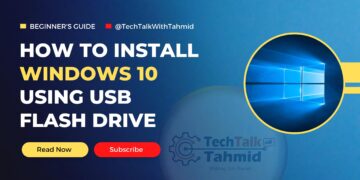The computing landscape is in constant flux, with new innovations continually vying for the spotlight. Currently, much of the industry buzz revolves around artificial intelligence, particularly its integration into personal computing devices. We are increasingly hearing about “AI-powered PCs” equipped with dedicated neural processing units (NPUs) and the promise of “proactive agents” that anticipate our needs and automate complex tasks. This article will explore whether these advancements represent a true paradigm shift in how we interact with technology, fundamentally altering the user experience and driving significant value for everyone, or if they are simply an overhyped collection of features primarily beneficial to a niche segment of users, leaving the average individual with little tangible improvement beyond what current systems already offer.
Defining the AI-powered PC and proactive agents
To truly understand the debate, it is essential to first clarify what these terms mean. An AI-powered PC is not merely a computer running AI software; it typically features specialized hardware, most notably a neural processing unit (NPU). Unlike traditional CPUs (central processing units) or GPUs (graphics processing units) that perform general computation or graphics rendering, NPUs are designed to accelerate machine learning workloads efficiently, offloading AI tasks and improving power efficiency. This on-device AI processing allows for faster execution of AI features without relying solely on cloud connectivity, enhancing privacy and responsiveness.
Proactive agents, on the other hand, are sophisticated software systems that leverage AI to anticipate user needs, automate actions, and provide personalized assistance without explicit commands. Think of them as intelligent digital assistants that learn from your habits, preferences, and context to offer timely suggestions, complete routine tasks, or optimize system performance in the background. Examples range from advanced virtual assistants that can chain multiple commands, to operating systems that intelligently manage power based on your usage patterns, or applications that draft emails and summarize documents based on context. These agents aim to reduce friction and cognitive load, making computing more intuitive and less demanding.
The promise of enhanced productivity and personalization
Proponents argue that the synergy of AI-powered hardware and proactive agents will usher in a new era of computing, fundamentally changing how we work and interact with our devices. For professionals, particularly those in creative fields, data analysis, or software development, the benefits appear substantial. AI can accelerate complex tasks like video rendering, image upscaling, or code generation. Proactive agents could manage schedules, filter notifications, and even suggest relevant information before you search for it, transforming workflows into seamless, hyper-personalized experiences. Imagine a PC that proactively prepares your workspace, opens necessary applications, and even outlines your daily tasks based on your calendar and recent activity, all while silently optimizing performance in the background.
Here is a comparison of how different tasks might be handled on traditional versus AI-powered PCs:
| Task Category | Traditional PC Approach | AI-Powered PC Approach (with proactive agents) |
|---|---|---|
| Content Creation (Video Editing) | CPU/GPU-intensive, manual effects, cloud-based AI tools. | NPU-accelerated effects, automatic scene detection, smart audio enhancements, predictive content suggestions. |
| Information Retrieval | Manual search queries, sifting through results. | Context-aware search, proactive information surfacing, intelligent summarization of long documents/web pages. |
| Productivity/Organization | Manual task management, calendar entries, file organization. | Predictive scheduling, automated email triage, intelligent file tagging and retrieval, workflow automation. |
| System Optimization | Manual updates, virus scans, occasional performance checks. | Continuous background optimization, predictive maintenance, adaptive power management based on usage patterns. |
This shift could lead to a computing experience where the machine actively assists, anticipates, and adapts, making technology truly work for the user rather than the other way around. The promise is not just speed, but a more intelligent, intuitive, and deeply personalized interaction.
Addressing the skepticism: current limitations and the average user’s perspective
Despite the exciting potential, a healthy dose of skepticism is warranted, particularly concerning the average user. Many core computing tasks, such as web browsing, email, word processing, or casual gaming, do not currently demand dedicated NPU acceleration. For these activities, a modern CPU or integrated GPU is more than sufficient. The added cost of an NPU-equipped PC might not translate into a noticeable benefit for someone who primarily uses their computer for basic functions. Moreover, while proactive agents sound appealing, they introduce significant privacy concerns. For an agent to be truly proactive and helpful, it needs extensive access to personal data, usage patterns, and communication, raising questions about data security and ethical use.
Furthermore, the current generation of AI features, while impressive, often requires users to adapt their habits or learn new interaction methods. If the “proactive” suggestions are often inaccurate or intrusive, users may quickly disable them, negating their intended value. The “killer app” that genuinely showcases the indispensability of AI-powered PCs for the masses is still largely undefined. Without compelling software that uniquely leverages NPUs, these advanced features risk being perceived as mere marketing jargon or niche tools for power users and developers rather than essential components for the everyday consumer. The average user often prioritizes simplicity, reliability, and cost-effectiveness over advanced, potentially underutilized, AI capabilities.
The path forward: evolution, adoption, and killer applications
Whether AI-powered PCs and proactive agents become a paradigm shift or an overhyped feature set largely depends on their future evolution and adoption strategies. For widespread acceptance, several key factors must align. First, the cost of NPU-equipped hardware needs to decrease, making these features more accessible. Second, software developers must create truly compelling applications that seamlessly integrate AI capabilities, offering tangible benefits that are immediately apparent to the average user. These “killer apps” will demonstrate that AI is not just a novelty but an indispensable part of the computing experience, making tasks significantly easier, faster, or more enjoyable.
Moreover, user education will be crucial. Explaining the value proposition and demonstrating how these features enhance daily tasks, rather than just providing a list of technical specifications, will be vital for adoption. Addressing privacy concerns through transparent data handling policies and user-centric controls will also build trust. The transition is likely to be a gradual evolution rather than an abrupt revolution. As AI models become more efficient, on-device processing capabilities expand, and the software ecosystem matures, the distinction between an “AI PC” and a “regular PC” might blur, with AI simply becoming an integral, expected component of all modern computing devices.
In conclusion, the discourse around AI-powered PCs and proactive agents presents a compelling duality: immense potential for transformation versus the practical realities of user adoption and current limitations. While these technologies undoubtedly offer significant advantages for power users, developers, and specific professional workflows, promising unprecedented productivity and personalization, their immediate impact on the average user is still nascent. Current skepticism arises from the additional cost, privacy implications, and the absence of ubiquitous “killer applications” that would make these features indispensable for everyday computing tasks. The average user’s needs for simplicity, affordability, and clear value proposition remain paramount.
Ultimately, a true paradigm shift will hinge on several factors: the continued maturation of AI models, the development of intuitive and genuinely useful software that leverages dedicated AI hardware, and a transparent approach to privacy. It is unlikely to be an overnight revolution but rather a gradual evolution, where AI capabilities become seamlessly integrated into our computing experience, transforming from an “overhyped feature” to an expected utility only when their benefits become universally undeniable and effortlessly accessible to everyone, regardless of their technical expertise. The journey towards this ubiquitous integration is well underway, but patience and innovation remain key.


















